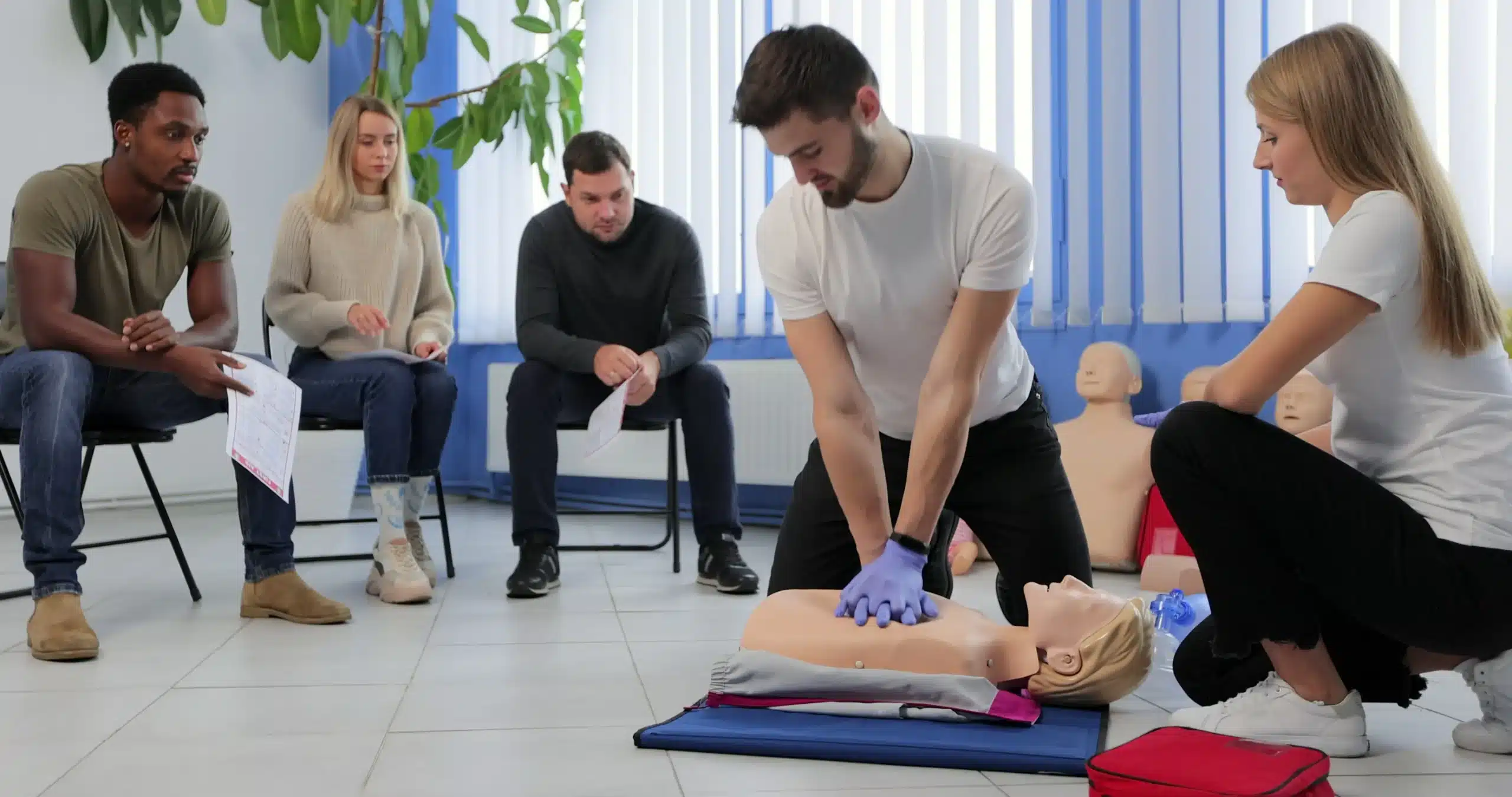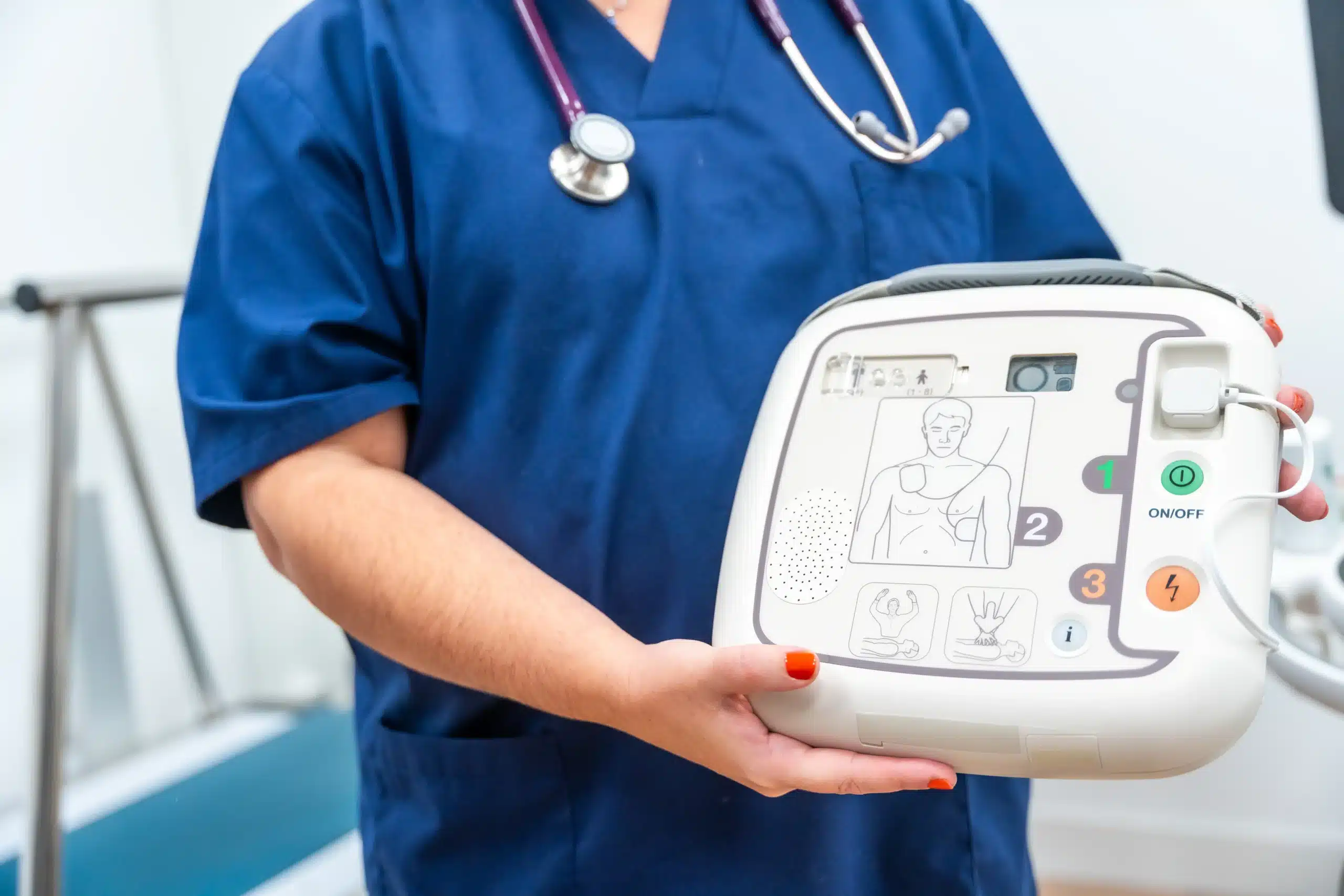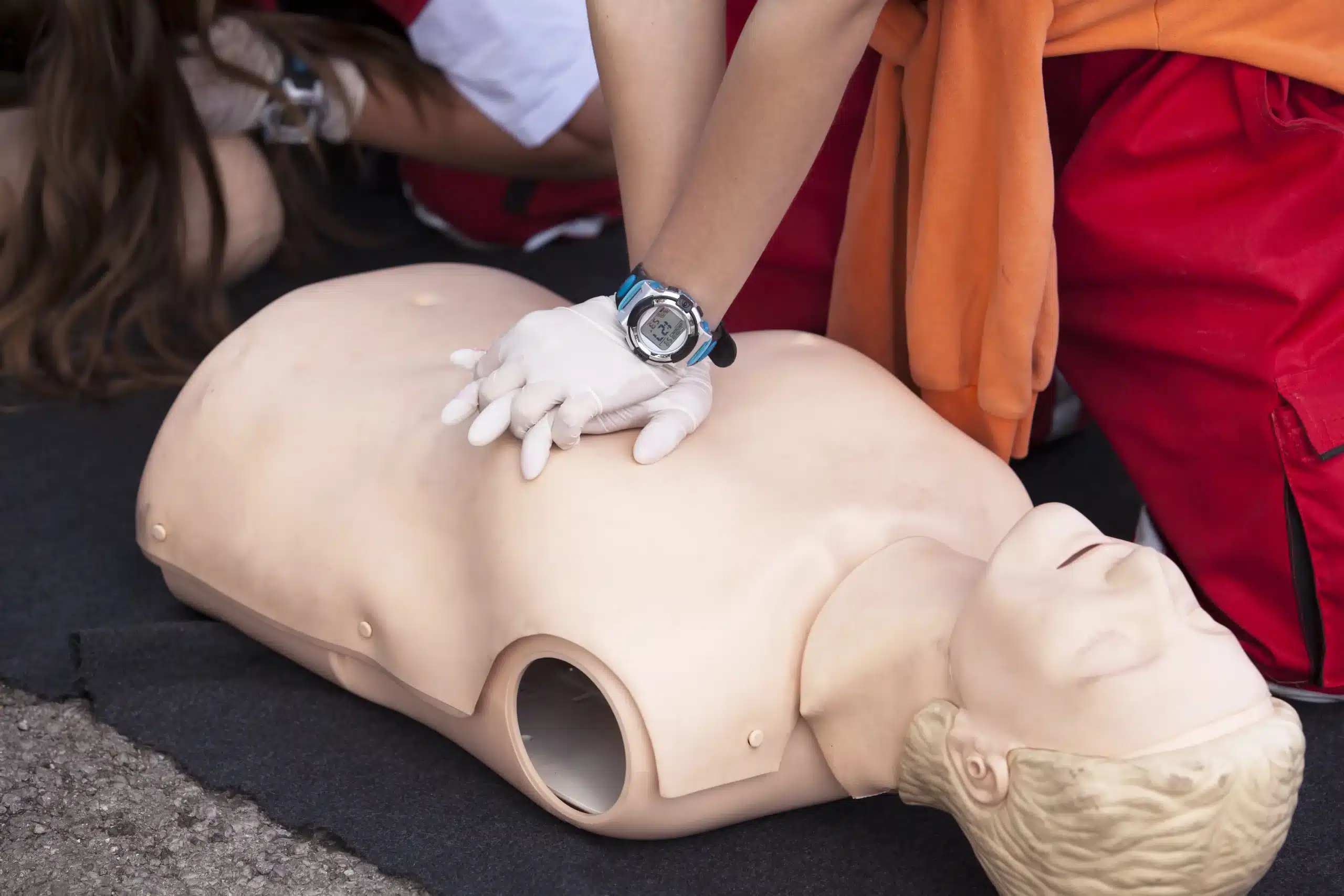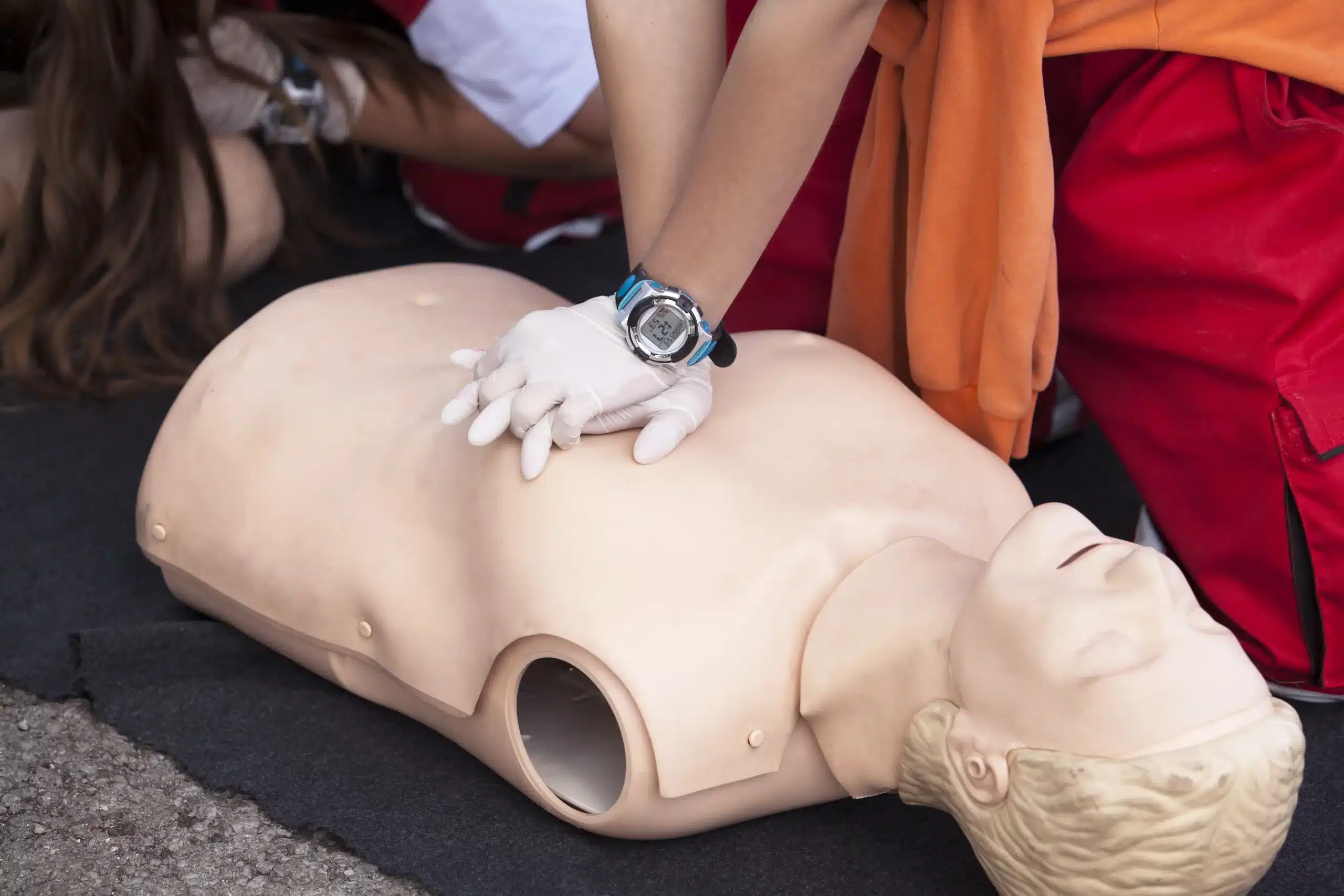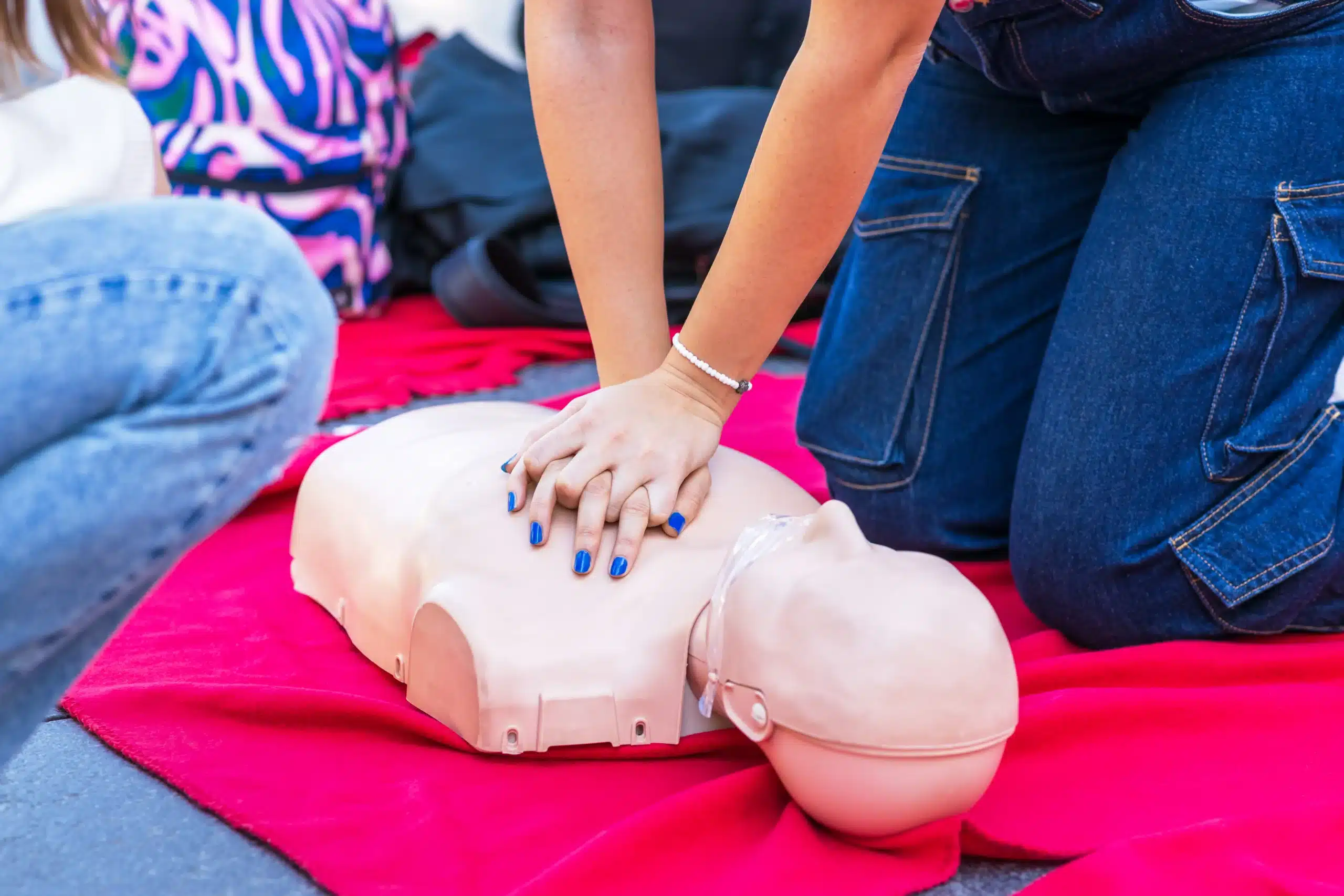For healthcare professionals in Daly City, staying current with the latest life-saving techniques is paramount. Resuscitation Quality Improvement (RQI) offers a dynamic approach to CPR training, focusing on consistent practice and real-time feedback. This comprehensive guide will cover everything you need to know about RQI in Daly City. We’ll explore the core principles of RQI, compare it to traditional CPR methods, and delve into the specific certifications available, including BLS, ACLS, and PALS. We’ll also guide you through the enrollment process, address common questions, and showcase the transformative impact of RQI through real-world success stories.
Key Takeaways
- RQI improves CPR skills and confidence: Frequent, short practice sessions with real-time feedback help you master proper technique and build confidence for real-world emergencies.
- RQI training offers flexibility: The blended learning format combines online modules with shorter in-person skills sessions, making it easier to fit training into your busy schedule.
- RQI certification enhances your career: Demonstrate your commitment to high-quality patient care and open doors to new opportunities with nationally recognized RQI certification for BLS, ACLS, and PALS.
What is RQI and Why Does it Matter?
What is Resuscitation Quality Improvement?
Resuscitation Quality Improvement (RQI) changes how healthcare professionals learn and maintain CPR skills. Instead of traditional classroom learning, RQI focuses on short, frequent practice sessions with real-time feedback. It’s a “little and often” approach to training. RQI uses special manikins with built-in sensors and voice prompts that guide you through compressions and breaths, helping you perfect your technique. Learn more about our RQI classes.
Why is RQI Important in Healthcare?
In healthcare, seconds matter. RQI keeps your CPR skills sharp so you can respond confidently in a crisis. Studies show this frequent practice approach significantly improves CPR skill retention—more than double compared to traditional methods. This means you’re better prepared to deliver high-quality CPR when it’s needed most. RQI also helps healthcare facilities meet their mandatory training requirements, creating a higher standard of patient care and a safer environment. Plus, many healthcare providers find that using an instant feedback system like RQI highlights areas for improvement. This continuous feedback is key to mastering life-saving techniques.
RQI vs. Traditional CPR Training: What’s the Difference?
RQI represents a significant shift in how healthcare professionals maintain their CPR skills. While traditional CPR training typically involves infrequent, lengthy classroom sessions, RQI offers a more modern, flexible, and effective approach. Let’s explore the key differences.
RQI’s Advanced Technology
The American Heart Association’s RQI program uses innovative technology to improve CPR competency. It replaces the traditional two-year certification model with low-dose, high-frequency training. This approach reinforces skills regularly, leading to better retention and improved performance in real-life emergencies. RQI training incorporates advanced simulation technology and voice-assisted manikins that provide real-time feedback on compression depth, rate, and recoil, ensuring learners practice correct techniques. This personalized feedback is a key advantage over traditional methods, which often lack individualized instruction. For medical professionals in Daly City, RQI offers the most modern approach to maintaining American Heart Association BLS, ACLS, and PALS certifications.
RQI’s Flexible Learning
One of the biggest advantages of RQI is its flexible learning format. Instead of blocking out an entire day for a traditional CPR class, RQI allows you to complete the cognitive portion of the training online, at your own pace. This typically takes just a few hours and can be accessed from anywhere with an internet connection. This flexibility makes it much easier to fit training into busy schedules, reducing the disruption to work and personal life. After completing the online portion, you’ll schedule a short, hands-on skills session with an RQI instructor.
RQI’s Real-Time Feedback
RQI’s real-time feedback mechanism is a game-changer for CPR training. As you practice on the manikins, you receive immediate feedback on your performance. This instant feedback helps you identify and correct any errors in your technique, ensuring you develop and maintain high-quality CPR skills. Studies have shown that this type of frequent practice with audiovisual feedback significantly improves CPR performance and skill retention. Low-dose, high-frequency training has been proven to more than double providers’ retention of high-quality CPR skills compared to traditional methods. This consistent reinforcement helps build confidence and ensures you’re always prepared to deliver effective CPR in a real emergency. RQI helps participants identify areas for improvement and maintain consistent, high-quality CPR skills.
RQI Certifications in Daly City: Which One is Right for You?
RQI courses offer several different certifications. Choosing the right one depends on your career path and required skill set. Let’s break down the most common RQI certifications available in Daly City.
BLS Certification
The American Heart Association RQI program offers a modern and efficient path to BLS certification in Daly City. BLS, or Basic Life Support, focuses on providing immediate care for life-threatening emergencies like cardiac arrest, respiratory distress, and choking. It’s a foundational certification for healthcare providers, including doctors, nurses, paramedics, and other medical professionals. The RQI program makes earning and maintaining your BLS certification convenient and flexible.
ACLS Certification
For healthcare professionals dealing with more complex cardiovascular emergencies, ACLS certification is essential. ACLS stands for Advanced Cardiovascular Life Support, and it builds upon the skills learned in BLS. This certification covers advanced techniques like airway management, intravenous drug administration, and electrocardiogram (ECG) interpretation. RQI streamlines the ACLS recertification process, ensuring you stay up-to-date with the latest guidelines.
PALS Certification
Healthcare providers working with infants and children should consider PALS certification. PALS, or Pediatric Advanced Life Support, equips professionals with the specialized knowledge and skills to respond to pediatric emergencies. The RQI program offers PALS certification, with a comprehensive curriculum covering everything from respiratory management to defibrillation in young patients. It’s a crucial certification for pediatricians, pediatric nurses, emergency medical technicians, and anyone involved in pediatric care.
RQI Enrollment: Process, Costs, and Scheduling
Enrolling in an RQI program is straightforward and designed to fit your busy schedule. Here’s what you can expect:
Take the Online Course
The American Heart Association RQI (Resuscitation Quality Improvement) program offers a modern and efficient way to get your BLS, ACLS, and PALS certifications. You’ll start by completing a self-paced online course, conveniently accessible from home. This portion typically takes just a few hours, allowing you to learn the material at your own speed. Learn more about our RQI classes.
Pass the Hands-On Skills Test
After finishing the online portion, you’ll schedule a hands-on skills test. This involves demonstrating your techniques on a voice-assisted manikin (VAM). The VAM provides real-time feedback, helping you refine your skills and ensuring you’re prepared for real-world scenarios.
Find a Class Time
We understand that scheduling can be tricky, so we offer AHA courses seven days a week in Daly City. This flexibility makes it easier to find a class time that works for you. We also serve surrounding areas like San Mateo and Millbrae.
Get the Lowest Price in San Mateo County
Daly City CPR Classes is committed to providing high-quality training at an affordable price. We offer a low-price guarantee in San Mateo County, ensuring you receive the best value. Contact us to learn more about our pricing and courses.
Benefits of RQI Certification: Advance Your Career
RQI certification offers several benefits, from sharpening your skills to creating new career opportunities. It’s a worthwhile investment in your professional future.
Get Certified Today
The American Heart Association RQI (Resuscitation Quality Improvement) program is a popular and efficient way for medical and healthcare professionals in Daly City to earn their official American Heart Association BLS, ACLS, and PALS certifications. Whether you’re just starting out or renewing your credentials, RQI offers a streamlined path.
Train with Advanced Technology
RQI training uses advanced technology, going beyond traditional CPR courses. You’ll practice with manikins that provide real-time feedback, helping you hone your technique and build confidence. This hands-on training with audiovisual feedback demonstrably improves CPR performance.
Advance Your Career
RQI certification can give you an edge in today’s competitive healthcare field. It shows your commitment to high-quality patient care and can lead to new opportunities. RQI training improves both CPR skill retention and compliance with mandatory training, making you a valuable member of any healthcare team.
Improve Your Skills
RQI focuses on low-dose, high-frequency training, which significantly improves CPR skill retention. Studies show that shorter, more frequent sessions improve providers’ retention of high-quality CPR skills, ensuring you’re always ready to provide effective care. Learn more about the effectiveness of this training in the RQI evidence library.
Your RQI Training: What to Expect
So, you’re ready to start your RQI journey? Here’s a glimpse into what awaits you:
Learn Online
The American Heart Association RQI (Resuscitation Quality Improvement) program offers a modern and efficient path to your BLS, ACLS, and PALS certifications. You’ll start by completing the online portion of the course, which you can do from home. This typically takes a few hours and lets you learn at your own speed.
Practice with Voice-Assisted Manikins
RQI training includes hands-on practice with voice-assisted manikins (VAMs). These manikins give real-time feedback on your compressions and ventilations, which helps you perfect your technique and develop muscle memory. This interactive approach reinforces what you’ve learned and builds confidence.
Complete Your Skills Assessment
After the online coursework and VAM practice, you’ll complete a skills assessment. You’ll demonstrate your CPR skills to a certified instructor. This assessment is key to ensuring you meet the American Heart Association’s standards and can perform CPR effectively in a real-life emergency.
Access Post-Training Support
Your learning continues even after the skills assessment. RQI offers post-training support and resources to help you maintain your skills and stay current with the latest CPR guidelines. This ongoing support helps ensure you remain confident and competent.
Choosing Your RQI Provider in Daly City
Finding the right RQI provider is key to a positive and effective learning experience. Here’s what to consider when making your decision:
Check Accreditation and Qualifications
First, confirm your potential provider is accredited and uses the American Heart Association’s RQI program. This ensures your training meets the highest standards and that you receive a valid AHA certification card. The American Heart Association RQI program is the gold standard for resuscitation training, offering a modern and efficient path to BLS, ACLS, and PALS certification.
Find a Flexible Class Schedule
Juggling work, family, and other commitments can make finding time for training tough. Look for a provider that offers a variety of class times and days to fit your busy schedule. Daly City CPR Classes offers courses seven days a week, making it easier to find a time that works for you.
Evaluate Facility and Equipment
Your learning environment matters. Modern facilities and well-maintained equipment contribute to a better learning experience. Consider visiting the facility or checking online reviews to get a sense of the training environment. High-quality training ensures you have the knowledge and skills to perform CPR confidently and effectively.
RQI Providers in Daly City
Here are a few options for RQI training in Daly City:
Daly City CPR Classes
Daly City CPR Classes focuses on providing high-quality, affordable CPR training. They aim to equip students with the skills and confidence to handle medical emergencies effectively. Check out their website for more information on RQI courses and their low price guarantee. For any questions, contact them directly.
Other Local Providers
You can also research other training centers in the area. A quick online search will reveal more options in Daly City.
Common RQI Concerns: Addressed
It’s normal to have questions about a new training program. Here are answers to some common concerns we hear about RQI.
Is Online Learning Effective?
Yes! Research shows online learning can be just as effective as in-person instruction, especially with interactive elements and regular assessments. RQI uses a blended learning approach, combining online modules with hands-on practice to really solidify those essential skills. This combination helps you retain information and apply it effectively in real-world situations.
Is RQI Certification Valid?
Absolutely. The RQI program is recognized by the American Heart Association and provides valid certification for BLS, ACLS, and PALS. This certification is widely accepted by healthcare institutions across the country, ensuring you meet the required standards for patient care. You can confidently renew your CPR certification with RQI training.
Is RQI Worth the Cost?
RQI is an investment in your skills and your career. Studies show that short, frequent training sessions significantly improve how well you remember CPR skills. This approach improves the quality of care you provide and makes sure you’re truly prepared for emergencies. See the research and data supporting RQI’s effectiveness. Plus, at Daly City CPR Classes, we offer a low price guarantee for all our courses.
RQI Success Stories: Hear From Others
RQI isn’t just another training program; it’s a different approach to resuscitation training, giving healthcare providers the skills and confidence to deliver high-quality CPR. But don’t just take our word for it—hear what others are saying about RQI’s impact.
Many healthcare professionals find that RQI’s short, frequent practice sessions dramatically improve their retention of CPR skills. Studies show this approach can more than double the retention of high-quality CPR skills. This means providers are better prepared to respond effectively in emergencies. Learn more about the evidence supporting RQI’s effectiveness.
For many providers, using RQI is the first time they realize their previous CPR skills may have been inadequate. Using instant feedback systems, like those in RQI, nurses performing chest compressions and ventilations often gain a new understanding of the precision and technique required for effective CPR. This real-world application of RQI highlights its value.
RQI’s positive impact isn’t just anecdotal; it’s backed by data. Research shows statistically significant improvements in CPR skills performance among those who complete RQI training. At Daly City CPR Classes, we’re committed to providing high-quality training that equips individuals with the skills to perform CPR safely and effectively. Explore our CPR and first-aid courses and discover how RQI can benefit your career.
Related Articles
- RQI Classes in Daly City – Daly City CPR Classes
- Why CPR Is Crucial in Healthcare
- American Heart Association (AHA) Classes in Millbrae – Daly City CPR Classes
- CPR Training in Millbrae: Your Complete Guide – Daly City CPR Classes
- HeartCode PALS Millbrae: Your Certification Guide – Daly City CPR Classes
Frequently Asked Questions
How does RQI differ from traditional CPR training?
RQI replaces long, infrequent CPR classes with shorter, more frequent practice sessions using high-tech manikins. These sessions provide instant feedback, helping you hone your skills and retain knowledge better than traditional methods. You can also complete the cognitive portion of the training online, making it much more flexible.
Which RQI certification is right for me?
It depends on your profession and the level of care you provide. BLS is fundamental for most healthcare providers. ACLS is geared towards advanced cardiovascular emergencies, while PALS focuses on the specific needs of infants and children. Consider your current role and future career goals when choosing.
What can I expect during RQI training?
You’ll start with an online course you can complete at your own pace. Then, you’ll schedule a short, hands-on skills session with an RQI instructor. During this session, you’ll practice on a voice-assisted manikin that provides real-time feedback. Finally, you’ll complete a skills assessment to demonstrate your proficiency.
Why should I choose RQI over traditional CPR renewal?
RQI offers more flexible learning, personalized feedback, and demonstrably better skill retention. It’s designed to fit your busy schedule and ensure you’re always prepared to deliver high-quality CPR. Plus, it’s backed by the American Heart Association, so you know you’re receiving top-tier training.
How do I find a reputable RQI provider in Daly City?
Look for providers accredited by the American Heart Association and offering a variety of class times. Check if they use modern equipment and consider visiting the facility or reading online reviews. Don’t hesitate to contact the provider directly with any questions about their program.



